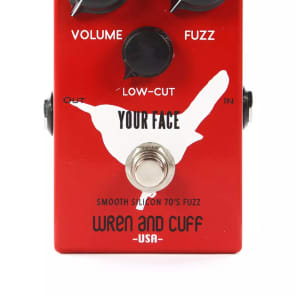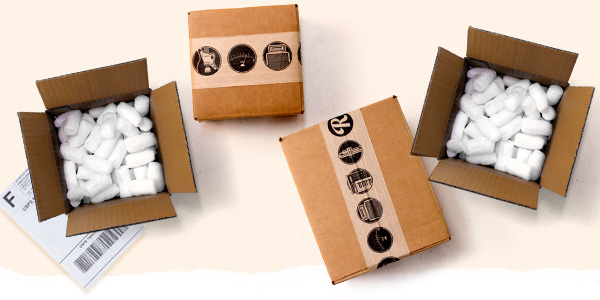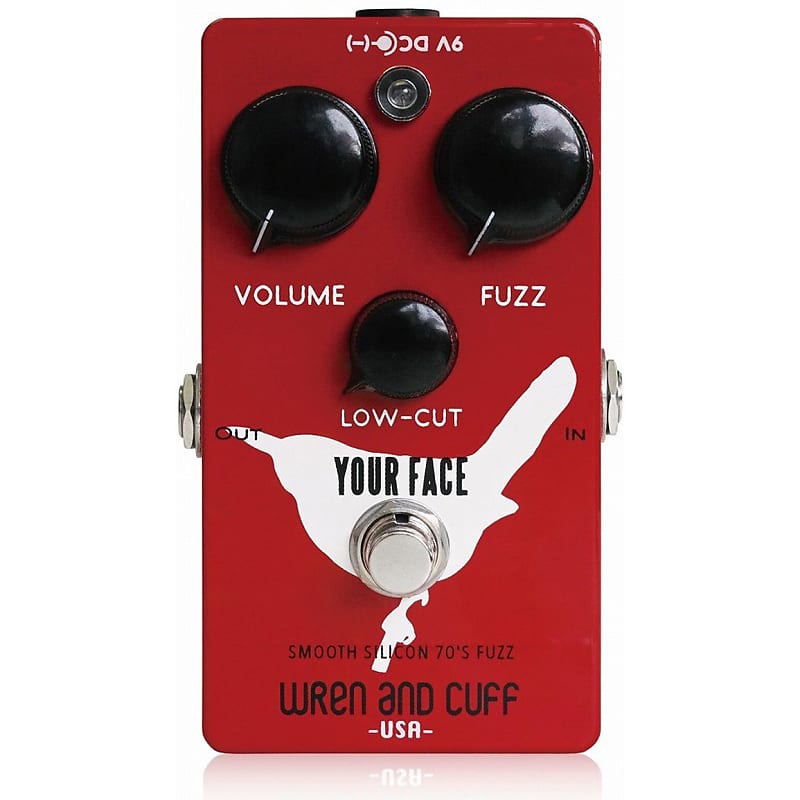

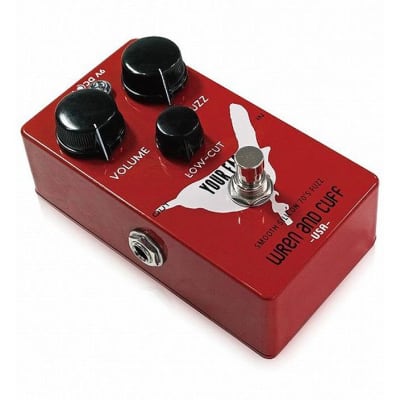
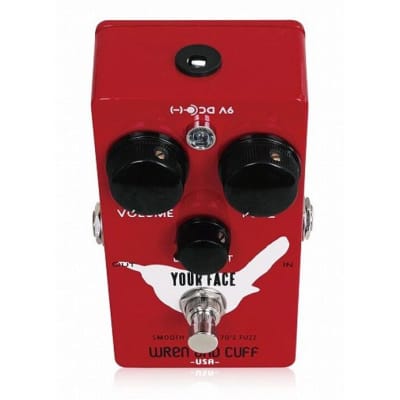
Wren and Cuff Your Face Smooth Silicon '70s Fuzz Pedal
The classic Fuzz Face circuit is the stuff of legends, though the road was fraught with hardships due to the pesky germanium transistors. Even Dallas-Arbiter, the producer of the original circuit, didn't get it right all the time. Those old parts are prone to leakage and temperature sensitivity, and some of them even today sound woefully sputtery.
That problem was remedied with the advent of the silicon transistor, and D-A released a few Fuzz Faces with these brave new parts. It is from this coming-of-age story that the Your Face 70 takes it's cue.
Inside the YF 70, you'll find two precision-matched silicon devices, not selected because of their historical significance, but because they embody the spirit of the first silicon 'Face that rolled off the line: brash, raw, and silky smooth.
There's a Low Cut knob to curb the beefiness and allow the player to sit snug in the mix. What's more, a common concern with Fuzz Face type pedals is the sweep of the Fuzz knob. No longer is the fuzz hiding in the last 10 percent of the knob!
The Wren and Cuff Your Face is hand built, one at a time by people that know their fuzzes. The pedal is true bypass and accepts a standard 2.1mm 9v center-negative Boss-style adapter. The current draw is very low—ready for isolated power supplies!
Features:
• Hand matched NOS BC108C Transistors
• True hard-wire bypass
• 9V battery or 2.1mm adapter
• Made in the USA
• Lifetime warranty
The classic Fuzz Face circuit is the stuff of legends, though the road was fraught with hardships due to the pesky germanium transistors. Even Dallas-Arbiter, the producer of the original circuit, didn't get it right all the time. Those old parts are prone to leakage and temperature sensitivity, and some of them even today sound woefully sputtery.
That problem was remedied with the advent of the silicon transistor, and D-A released a few Fuzz Faces with these brave new parts. It is from this coming-of-age story that the Your Face 70 takes it's cue.
Inside the YF 70, you'll find two precision-matched silicon devices, not selected because of their historical significance, but because they embody the spirit of the first silicon 'Face that rolled off the line: brash, raw, and silky smooth.
There's a Low Cut knob to curb the beefiness and allow the player to sit snug in the mix. What's more, a common concern with Fuzz Face type pedals is the sweep of the Fuzz knob. No longer is the fuzz hiding in the last 10 percent of the knob!
The Wren and Cuff Your Face is hand built, one at a time by people that know their fuzzes. The pedal is true bypass and accepts a standard 2.1mm 9v center-negative Boss-style adapter. The current draw is very low—ready for isolated power supplies!
Features:
• Hand matched NOS BC108C Transistors
• True hard-wire bypass
• 9V battery or 2.1mm adapter
• Made in the USA
• Lifetime warranty
| Condition | Brand New (New) Brand New items are sold by an authorized dealer or original builder and include all original packaging.Learn more |
| Brand | |
| Model |
|
| Categories |

